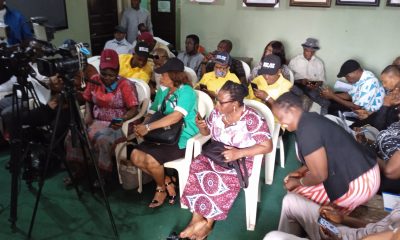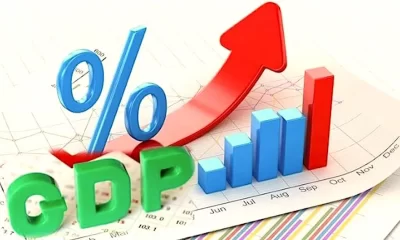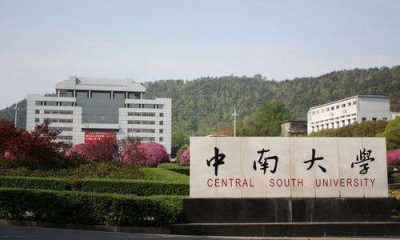Business
CBN should step back as FX intermediator, allow banks to control dollar rates, says IMF
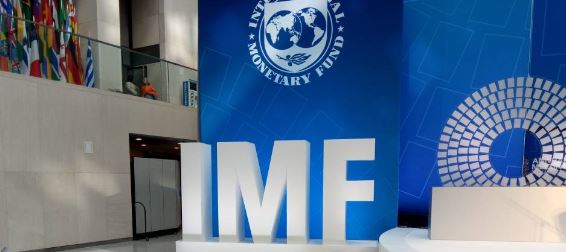
The International Monetary Fund (IMF) has asked the Central Bank of Nigeria (CBN) to step back and allow commercial banks to determine dollar buy-sale rates to boost foreign capital flows to the economy.
IMF said this in its 2022 Article IV Consultation concluding statement after an official staff visit to Nigeria.
The Bretton Wood institution reiterated that a unified and market-clearing exchange rate remains critical to enhancing the confidence of foreign investors in the economy.
It added that administrative restrictions on current transactions fuel devaluation speculations and discourage capital inflow.
“Continued FX shortages, a stabilised exchange rate regime, rising inflation, limited debt servicing capacity, and administrative restrictions on current transactions fuel devaluation speculations,” IMF said.
“These factors hinder much-needed capital inflows, encourage outflows and constrain private sector investment.
“The mission reiterated its past recommendations to move towards a unified and market-clearing exchange rate by dismantling the various exchange rate windows at the CBN accompanied by clarity on exchange rate policy and supportive fiscal and monetary policies. In the medium term, the CBN should step back from its role as main FX intermediator, limiting interventions to smoothing market volatility and allowing banks to freely determine FX buy-sell rates.”
ADOPT TAX REFORMS
The IMF team advised Nigerian authorities to consider adjusting tax rates to levels comparable to the average in the Economic Community of West African States (ECOWAS) as compliance improves.
“This includes further increasing the VAT rate to 15 percent by 2027 in steps while streamlining numerous VAT exemptions based on systemic reviews, increasing excise rates on alcoholic and tobacco products while broadening the base, and rationalising tax incentives by streamlining tax expenditures based on comprehensive periodic reviews,” it added.
It also said the government should develop a compliance improvement programme and comprehensive customs modernisation programme, improve the effectiveness of the State Internal Revenue Service’s administration of the Pay-As-You-Earn (PAYE) system, and strengthen inter-agency coordination and data sharing.
It welcomed the steady implementation of the tax automation system (TaxPro Max) by the Federal Inland Revenue Service (FIRS) and recommended stepping up efforts to further expand coverage under a well-designed roadmap and strengthen taxpayer segmentation centering on the Large Taxpayer Offices (LTOs).
REMOVE PETROL SUBSIDY PERMANENTLY
It also advised Nigeria to remove fuel subsidies and address oil theft as a major step to narrowing the fiscal gap. The fund advised that as a near-term priority, there is an urgent need to remove fuel subsidies fully and permanently, which disproportionately benefit the well-off, by mid-2023 as planned.
“The government should also prioritise addressing oil thefts and governance issues in the oil sector to restore production to pre-pandemic levels. Step up implementation of tax administration reforms,” it said.
CLOSER LOOK AT NNPC FINANCIALS
The fund called for a closer look at NNPC’s financials, the nature of write-offs in its books as well as fuel consumption figures to ensure fiscal transparency.
“Notwithstanding recent improvements, some gaps remain. While the authorities have published the annual financial reports of the Nigeria National Petroleum Corporation (NNPC) since 2019, uncertainties remain regarding the nature of tax write-offs and fuel consumption volumes,”. IMF said.
“The mission recommended a closer look at the nature of NNPC’s financial commitments to the government and the costing details of the fuel subsidy, including through a financial audit”.
The IMF also advised Nigeria to resolve weak smaller banks and proceed with the winding down of the Asset Management Corporation of Nigeria (AMCON) by end-2023.
Business
Nigeria’s GDP rate grew by 3.46% in Q3 2024, says NBS
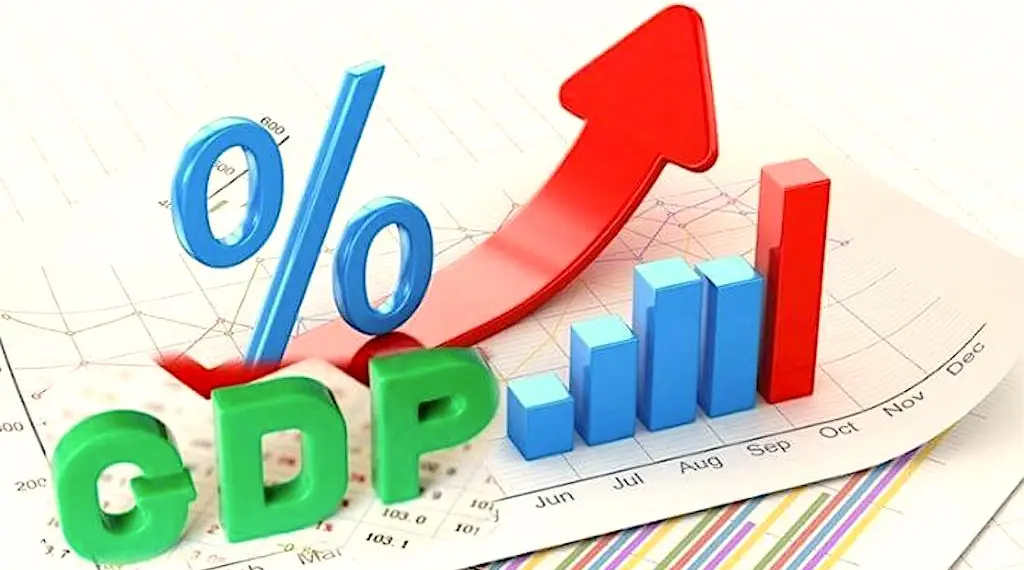
The National Bureau of Statistics (NBS) says Nigeria’s annual gross domestic product (GDP) grew by 3.46 percent in the third quarter (Q3) of 2024.
The NBS, in its GDP report published on Monday, said the growth rate is higher than the 3.19 percent recorded in Q2 2024.
Business
Dangote refinery reduces ex-depot price of petrol to N970 for oil marketers

The Dangote Petroleum Refinery has announced a reduction in its ex-depot price of premium motor spirit (PMS), also known as petrol, to N970 per litre for oil marketers.
This is a cut from the refinery’s N990 ex-depot price announced earlier this month, according to a statement on Sunday.
The slash would help marketers save about N20 on each litre of petrol bought from the Lekki-based plant.
Anthony Chiejina, Dangote Group’s chief branding and communications officer, said the move is the refinery’s way of appreciating Nigerians “for their unwavering support in making the refinery a dream come true”.
“In addition, this is to thank the government for their support as this will complement the measures put in place to encourage domestic enterprise for our collective well-being,” the statement reads.
“While the refinery would not compromise on the quality of its petroleum products, we assure you of best quality products that are environmentally friendly and sustainable.
“We are determined to keep ramping up production to meet and surpass our domestic fuel consumption; thus, dispelling any fear of a shortfall in supply.”
Business
Allegation of missing fund untrue, says Access Bank
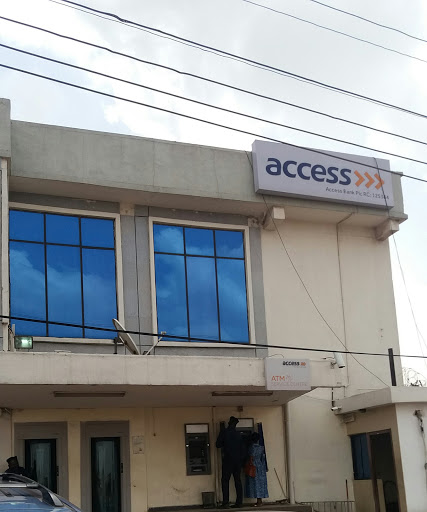
Access Bank Limited has dismissed as untrue allegations of missing fund and unethical behaviour.
The Bank in a statement said: “Our attention has been drawn to a video on social media wherein allegations of missing funds and unethical behaviour have been made against Access Bank PLC.
“First and foremost, we wish to emphasise that the safety and security of our customers’ funds are core priorities which we take seriously. Second, Access Bank Plc does not engage in or condone any unethical behaviour.
“In the instant case, the allegations of missing funds in the Bank are most untrue and baseless.
“There is no N500million or any other fund or amount missing from the subject customer’s account or from any other customer’s account with us.
“We and other independent stakeholders in the banking industry have thoroughly investigated these allegations and independently arrived at the same conclusions.
“Access Bank PLC operates with the highest ethical standards, and we protect our customers’ interests whilst also respecting privacy laws.
“Consequently, whilst we have engaged and will continue to engage with our customers, we must advise the public not to rely on or believe sensational and unverified claims that are designed to titillate and mislead the public.
“We remain committed to serving our customers.”
-
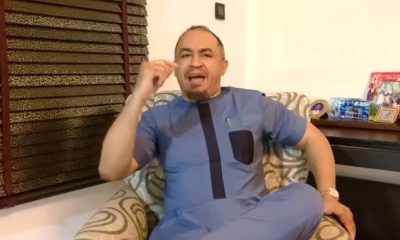
 Celebrities1 week ago
Celebrities1 week agoDaddy Freeze, Akah Nnani clash over Emmanuel Iren
-

 Business1 week ago
Business1 week agoLagos state government to commence upgrade of major junctions in Ikeja axis, seeks residents’ cooperation
-

 Politics1 week ago
Politics1 week agoDSS operatives arrest man with bags of cash during Ondo guber
-

 Special Features3 days ago
Special Features3 days agoIyabo Ojo, Brainjotter, Dayo Oketola, Penzaarville, Tomiwa and others to speak at the Bodex Social Media Hangout 5.0
-

 Health1 week ago
Health1 week agoFive ways to rid your home of ants
-
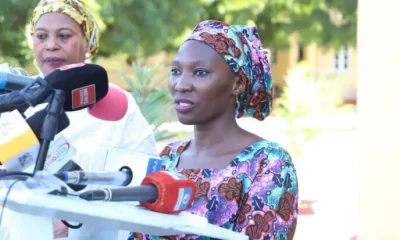
 News1 week ago
News1 week agoAlice Loksha, abducted UNICEF nurse, escapes captivity after 6 years
-

 News1 week ago
News1 week agoNnamdi Emeh: Suspect Facing Charges In Court, Process Independent Of Police Influence
-

 Politics1 week ago
Politics1 week agoAiyedatiwa takes commanding lead in Ondo guber poll after winning 15 of 18 LGAs

